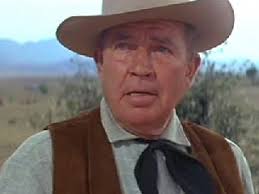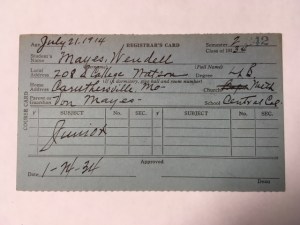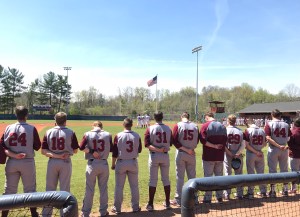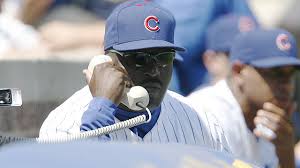Last year, I was asked to write an article about Cordell Hull for the Tennessee Baptist History Journal. During the process, I did quite a bit of research. However, the best part of the assignment was the day I spent at his birthplace. My parents joined me on the drive through the backroads of Tennessee, and we spent the day looking at the scenery and talking about all kinds of things.
The article was recently published, but I could find no online resource. Instead of sharing a link, I decided to share the article. Oh, if you have never heard of Cordell Hull, then let me introduce you to the man.
In 2013, the State of Tennessee proposed the demolition of the Cordell Hull Building, which has housed government employees since the 1950s. Uproar ensued as preservationists and citizens expressed outrage toward the plan, and, after furious debate, state officials determined that renovation of the Cordell Hull Building was the best option.
Despite the intensity of the argument, few people mentioned the person for whom the building is named. Perhaps that was because Middle Tennessee is dotted with places named in his honor: Cordell Hull Dam, Cordell Hull Lake, Cordell Hull State Park. Perhaps it was because people who argued against the demolition of the building did not realize the important role he played in the history of the United States and the history of the world. As Harold B. Hinton wrote, “There are scores of Tennesseans who have helped mightily in the building of the United States, and Cordell Hull must be numbered among them.”[1]
On October 2, 1871, Cordell Hull was born in a log cabin on a twelve-acre farm rented by his sharecropper father, Billy.[2] In his memoirs, Hull described Olympus, the nearest community, as “the only store in the entire section. This was also the post office.”[3] This was also the rural setting from which he learned the value of hard work and from which his love for learning began.
Hull’s childhood was filled with days working with his siblings in his father’s fields. They cultivated oats, sweet potatoes, Irish potatoes, corn and made molasses to give all of that a sweeter flavor.[4] When his father bought a larger farm and built a store, Hull continued to assist the family economically. At age eleven, he clerked at the store, and, as Hull wrote, “Sometimes a customer would come in and ask for the man in charge. I would reply proudly, ‘I am the man in charge.’”[5] His father agreed, as he once stated, “Cord was always just like a grown man, from the time he could walk.”[6]
Hull also helped his mother, Elizabeth, with spinning, weaving and milking the cows.[7] However, it was from his mother that he gained his love for learning. Hull wrote:
With all her work, however, she taught us our A B C’s and the first portion of Noah Webster’s old blue-back speller, which was current for generations in all public schools. She required us children to read the Bible as much as possible, and she herself read it constantly.[8]
Obviously, religion played an important role in the daily life of the Hull family, and Cordell Hull looked fondly upon this foundation of his faith. In his memoirs, he recounted:
The people of our section were mostly Primitive Baptists and Methodists…We had to go between one and two miles to the Primitive Baptist church on Wolf River, though sometimes services were held in private homes. The preacher was generally a farmer who tried to make a living on a farm and also undertook to preach. He was known locally as “the preacher.” Members of the church gave a little toward paying the preacher but not much.[9]
Hull continued:
Sometimes they had a preacher come from a distance and then they held splendid meetings. People went to the church from far and near. They walked or rode on horseback or in wagons and carts. There were no buggies in the ridge country at that time. Young men joined up with girl friends and went together to church. The boys wore stiff-standing paper collars, which on hot days were pretty well wilted down by the time they got to church walking or riding. I shall never forget the solemnity and fervor with which those people sand the hymn, “How Firm a Foundation.”[10]
He also remembered the important role of faith in local society when he wrote:
If a person was “skeptical,” he was promptly discovered and branded as an infidel, which rendered him somewhat unpopular and at that time deprived him of the right to testify under oath. Such persons were few and far between. The social life in the ridge country revolved largely around the church.[11]
Hull’s work ethic; thirst for knowledge; and strong faith served him well as his world expanded through higher education, but, at a time when rural families often chose one son to pursue a professional career, he first had to convince his father with what Hinton called “the most important speech in his life.”[12] Local parents established a debating society because, as Hull wrote, “they were deadly earnest that their children should get the utmost from their schooling.”[13] In 1885, Hull took his turn at the podium and argued that George Washington was more important to American history than Christopher Columbus. In front of a crowded room, he won the contest, and his father decided that his son “should go away to the best school he could afford,” which was the Montvale Institute in Celina, Tennessee.[14]
From Montvale, Cordell Hull matriculated to a normal school in Bowling Green, Kentucky and, after a few semesters, transferred to the National Normal University in Lebanon, Ohio.[15] Normal schools specialized in training students to become teachers. Despite this training, Hull wanted to study law, and his father rented an office in Celina where his son could begin reading the law.[16] Lawyers had been learning in this fashion for decades, however, in last decades of the 19th Century, the American Bar Association asserted that more rigorous training was needed.[17]
In 1891, Hull enrolled in the law school at Cumberland University in Lebanon, Tennessee, an institution with the reputation of developing some of the nation’s best legal minds.[18] As Hinton wrote in his biography of Cordell Hull, “Ever since the Civil War many of the greatest figures in Tennessee’s legal and political life have had their principal training at Cumberland.”[19] Hull recalled, “When I went to Congress sixteen years later I found in Washington four or five Senators, one Justice of the Supreme Court and twelve to fifteen Congressmen who were graduates of Cumberland University.”[20]
In addition to his academic growth, Hull gained experience outside the classroom that prepared him for the future. At age fourteen, he attended his first court session and first became interested in law. At age seventeen, he read his first newspaper, the Nashville American and listened to the ideas of men who gathered at the general store. From them he learned that “a person can’t ever amount to something unless he stands for something.”[21]
When Hull traveled to Bowling Green, he rode a train for the first time, and, when he attended school in Lebanon, Ohio, he first experienced life outside of the South.[22] However, his political career began back home when he was asked to speak at a rally. The organizers ran out of speakers but remembered his previous debate performance. At age sixteen, Hull spoke in support of Grover Cleveland for president of the United States. Cleveland lost, but, a few years later, Hull was elected Chairman of the Clay County Democratic Committee.[23]
In 1892, Hull ran for the State Legislature. While not yet old enough to hold office, his birthday would come before the general election. Until that time, he had to face a formidable opponent for the Democratic nomination. Realizing that he could not win in a party convention, Hull maneuvered his opponent into a primary election. He bought and horse; stumped throughout four counties; and carried each one.[24] He also won the general election and served in the State House until 1897.[25]
At age thirty-one, Hull became judge of the Fifth Judicial District.[26] Despite the fact that he served for only four years, people called him “Judge” for the rest of his life. As Hinton wrote, “In talking to a considerable number of men throughout the region where he lived for thirty-five years, I heard only two call him by his first name…The rest called him judge.”[27] He continued, “Mrs. Hull learned to call her husband ‘Judge,’ which she does to this day when speaking of him.”[28]
Through his judgeship, Hull became well known throughout the region, and some Democrats believed he would be a strong candidate for Congress in the 1906 election. Facing a strong primary opponent, he traveled throughout the district and relied on his father’s vast friendships. Hull won by fifteen votes and easily carried the general election.[29] This began a twenty-four year career in the United States House of Representatives, broken only by a two year stint as Chairman of the Democratic National Committee, and placed him in position to impact the nation.[30]
In Cordell Hull: A Biography, Harold B. Hinton called Cordell Hull “Father of the Income Tax,” and the moniker is appropriate.[31] In 1907, Hull first introduced a comprehensive income tax bill but knew that it had little chance for passage. For years, he refined his plan and included it in as many speeches as possible. However, the Supreme Court had ruled the income tax unconstitutional.[32] Then, the political climate changed.
In 1912, Woodrow Wilson, who wanted a lower tariff and a new revenue stream in its place, won the presidency, and, a month before his inauguration, the constitutional amendment allowing an income tax was ratified. As a member of the Ways and Means Committee, Hull was tasked with writing a new bill and introducing it to Congress. The income tax became law in October 1913, and, in his memoirs, Hull wrote, “Today the principle is so widely accepted that it seems difficult to visualize the need for the immense struggles that occurred before its adoption.”[33]
In 1914, the First World War began, and Hull saw an opportunity. As he later wrote, “To me, the war, disastrous as it was in all respects, offered both tragedy and a springboard for constructive legislation.”[34] This meant the introduction of his bill to tax inheritance, a revenue stream that Hull had been studying for several years. In 1916, President Wilson signed the Federal and State Inheritance Law.[35]
The end of World War One brought victory to the United States and the Allies. However, due to disagreement in the United States over joining the League of Nations, it brought defeat to President Woodrow Wilson and the Democratic Party. For the next decade, the Republican Party dominated national politics, and Cordell Hull felt the effects of his party’s decline. He lost one election bid for the House of Representatives and, when he made a comeback, lacked the power that he once held.[36]
The opportunity for Hull’s reemergence came in the early 1930s. In 1929, the stock market crashed during the administration of President Herbert Hoover, a Republican, which provided the Democratic Party an opportunity to regain control. That same year, Tennessee Senator Lawrence Tyson passed away. Hull, who had often thought about running for the Senate, announced his candidacy for the seat.[37]
During the Democratic primary, Hull faced the Memphis-based political machine of Boss Ed Crump and accusations of being out of touch with Tennesseans. His opponents talked about his car having a Washington, D.C. license plate and about him needing a driver from Washington to take him over Tennessee roads. However, Hull’s popularity with the people and national Democratic leaders brought victory in the primary and in the general election.[38]
In 1932, Franklin Roosevelt won the presidential election, and a Democrat inhabited the White House for the first time in twelve years. Hull wrote, “At long last, my party was back in power and I felt confident that a fruitful period of work and accomplishment lay before me and those of similar views.”[39] Despite that remembrance, he could not have envisioned that he would become the longest-serving Secretary of State in the history of the United States.
According to Hinton, “Through the preconvention days of 1932 Senator Hull had probably been the closest Congressional adviser Governor Roosevelt had.”[40] This placed him in the forefront of the new president’s mind for a cabinet appointment, but Hull did not see himself as a candidate. As Hull described:
At that moment I was to experience a great surprise. Mr. Roosevelt stopped over in Washington in January on his way to Warm Springs, Georgia, and sent for me to call on him at the Mayflower Hotel. Then and there, without much introduction, he offered me the Secretaryship of State.[41]
For over a month, Hull contemplated the offer and wondered if he could accomplish more in the Senate or as a member of the president’s cabinet. In February, Hull met with Roosevelt and explained, “If I accept the Secretaryship of State, I do not have in mind the mere carrying on of correspondence with foreign governments.”[42] The president-elect agreed, and Hull accepted the offer.
On March 4, 1933, Franklin Roosevelt took the oath of office and embarked on the longest and one of the most influential presidencies in American history.[43] On the same day, Cordell Hull took the oath for his office. Over the next decade, he faced economic decline throughout the world and the rise of dictatorships in Europe and Asia. However, he wanted to first become a good neighbor to the nations of Latin America.
The United States had a long policy of intervention in Latin America that caused feelings of resentment and distrust. Hull worked through these issues at the 1933 Pan-American Conference and laid the groundwork for Roosevelt’s Good Neighbor Policy. He continued to strengthen this policy throughout the by working with diplomats at the Inter-American Conference for the Maintenance of Peace in 1936 and at the Meeting of Ministers of Foreign Affairs of the American Republics in 1940.[44]
Despite this success, turmoil and violence defined Hull’s term as Secretary of State. Fascist and dictatorial leaders bent on war gained power around the world, and he knew to observe them closely. Of Adolph Hitler, Hull wrote, “Right from the beginning we faced one problem after another in our relations with Germany.”[45] He also faced problems with Benito Mussolini of Italy, Hirohito of Japan and others as they took steps toward war.
In his memoirs, Hull wrote, “I made it clear that, if Europe and Asia took the courses which the Axis nations were charting for them, war was certain to engulf the world.”[46] On September 1, 1939, Cordell Hull was proven to be correct when Germany invaded Poland and World War II began. He spent the previous six years trying to prevent war. Now, Secretary Hull and President Roosevelt tried to steer the United States through war.
On September 5, Roosevelt declared the neutrality of the United States.[47] However, he and Hull knew that the nation must assist the fight to uphold democracy in Europe. After a political fight with isolationists, the Lend-Lease Act passed, and the administration gained the ability to ship weapons to nations fighting against the oppressive regimes.[48]
For two years, the United States assisted the Allies of Europe while watching the advances of Japan in Asia. As Hull wrote, “We considered Japan’s expansionist ambitions an eventual danger to our own safety.”[49] With that in mind, he spoke with Japanese delegates about protecting the sovereignty of Asian nations and the economic role of the United States in that part of the world. Those talks continued until December 7, 1941.
On that morning, Hull waited in his office for a meeting with representatives from Japan, but he first received a call from the president with news that Pearl Harbor had been attacked. An hour later, the envoys arrived, and Hull admonished them for continuing talks of peace while planning an attack. He wrote, “I have seen it stated that I “cussed out” the Japanese envoys in rich Tennessee mountain language, but the fact is…no “cussing out” could have made it any stronger.”[50]
The next day, the United States declared war on Japan, and, a few days later, declared war on Germany and Italy. While Roosevelt planned for the fight, he directed Hull to plan for the peace. Thinking about Woodrow Wilson’s failure to convince the United States to join the League of Nations, Hull believed there needed to be “a viable and practical structure by which the peace of the world could be successfully maintained.”[51] He formed a committee of Democrats and Republicans to complete the task, and, in 1943, the State Department completed the “Charter of the United Nations.”[52]
Due to ill health, Hull retired and, while appointed to the American delegation, could not attend the first meeting of the United Nations in San Francisco.[53] However, President Roosevelt had already stated what everyone involved already knew. Cordell Hull was the “Father of the United Nations.”[54] In 1945, he was awarded the Nobel Prize for Peace “in recognition of his work in the Western Hemispheres, for his international trade agreements, and for his efforts in establishing the United Nations.”[55]
On July 23, 1955, Cordell Hull passed away and left a legacy of public service that began in rural Tennessee and ended with an attempt to create everlasting peace for the world.[56] Hull must have been thinking of those days when he ended his memoirs by writing:
If we are willing from time to time to stop and appreciate our past, appraise our present and prepare for our future, I am convinced that the horizons of achievement still stretch before us like the unending Plains. And no achievement can be higher than that of working in harmony with other nations so that the lash of war may be lifted from our backs and a peace of lasting friendship descend upon us.[57]
[1] Harold B. Hinton, Cordell Hull: A Biography (Garden City, New York: Doubleday, Doran & Company, Inc., 1942), 4.
[2] Cordell Hull Birthplace and Museum State Park, Tour, July 30, 2016.
[3] Cordell Hull, The Memoirs of Cordell Hull, vol. 1 (New York: The MacMillan Company, 1948), 3.
[4] Cordell Hull Birthplace and Museum State Park.
[5] Hull 1948, 12.
[6] “The Hulls of Tennessee,” LIFE, March 18, 1940, 81.
[7] Cordell Hull Birthplace and Museum State Park.
[8] Hull 1948, 5.
[9] Ibid., 8.
[10] Ibid., 8.
[11] Ibid., 8.
[12] Hinton 1942, 25.
[13] Hull 1948, 14.
[14] Ibid., 15.
[15] Cordell Hull Birthplace and Museum State Park.
[16] Hinton 1942, 29.
[17] Albert J. Harno, Legal Education in the United States: A Report for the Survey of the Legal Profession (1953), 19.
[18] Cordell Hull Birthplace and Museum State Park.
[19] Hinton 1942, 30.
[20] Hull 1948, 27.
[21] Ibid., 24.
[22] Ibid., 23.
[23] Cordell Hull Birthplace and Museum State Park.
[24] Hull 1948, 29.
[25] Cordell Hull Birthplace and Museum State Park.
[26] Hull 1948, 38.
[27] Hinton 1942, 25.
[28] Ibid., 10.
[29] Hull 1948, 43.
[30] Cordell Hull Birthplace and Museum State Park.
[31] Hinton 1942, 129.
[32] Hull 1948, 48.
[33] Ibid., 71.
[34] Ibid., 75.
[35] Cordell Hull Birthplace and Museum State Park.
[36] Hinton 1942, 166.
[37] Hull 1948, 134.
[38] Ibid., 136.
[39] Ibid., 154.
[40] Hinton 1942, 203.
[41] Hull 1948, 156.
[42] Ibid., 158.
[43] Cordell Hull Birthplace and Museum State Park.
[44] Ibid.
[45] Hull 1948, 236.
[46] Ibid., 665.
[47] Hinton 1942, 341.
[48] Ibid., 348.
[49] Cordell Hull, The Memoirs of Cordell Hull, vol. 2 (New York: The MacMillan Company, 1948), 982.
[50] Ibid., 1097.
[51] Ibid., 1625.
[52] Cordell Hull Birthplace and Museum State Park.
[53] Hull 1948, 1721.
[54] Ibid., 1723.
[55] Cordell Hull Birthplace and Museum State Park.
[56] Ibid.
[57] Hull 1948, 1742.
Tags: Academics, Boss Crump, Cordell Hull, Cumberland University, Franklin Roosevelt, Herbert Hoover, History, Pearl Harbor, Tennessee, Tennessee Baptist History Journal, United Nations, Woodrow Wilson














